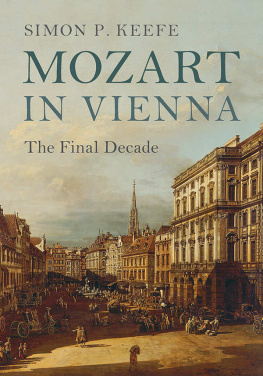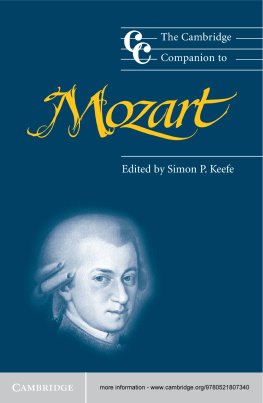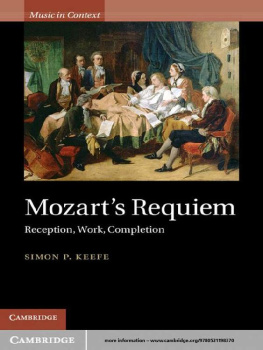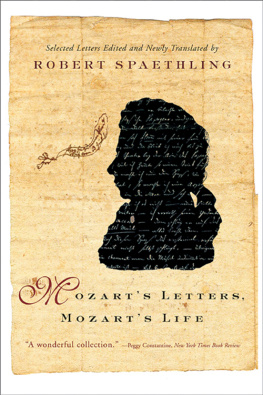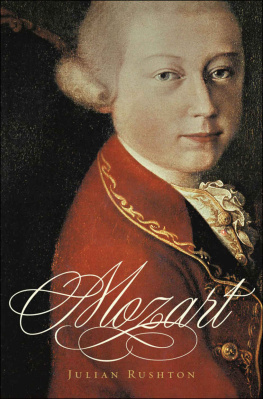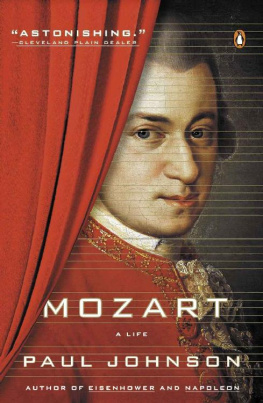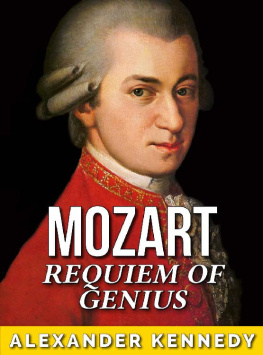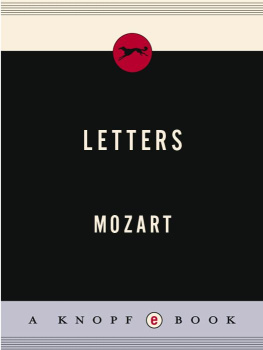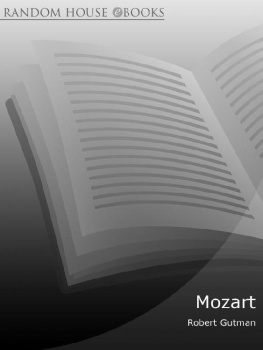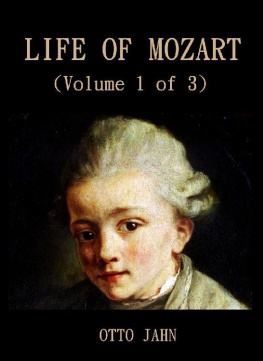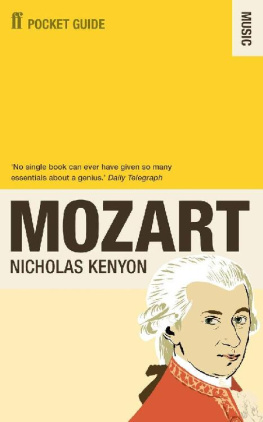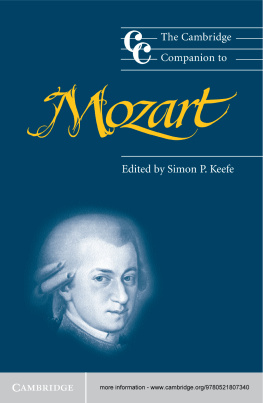Mozarts greatest works were written in Vienna in the decade before his death (17811791). This biography focuses on Mozarts dual roles as a performer and composer and reveals how his compositional processes were affected by performance-related concerns. It traces consistencies and changes in Mozarts professional persona and his modus operandi , and sheds light on other prominent musicians, audience expectations, publishing, and concert and dramatic practices and traditions. Giving particular prominence to primary sources, Simon P. Keefe offers new biographical and critical perspectives on the man and his music, highlighting his extraordinary ability to engage with the competing demands of singers and instrumentalists, publishing and public performance, and concerts and dramatic productions in the course of a hectic, diverse and financially uncertain freelance career. This comprehensive and accessible volume is essential for Mozart lovers and scholars alike, exploring his Viennese masterpieces and the people and environments that shaped them.
Simon P. Keefe is James Rossiter Hoyle Chair of Music at the University of Sheffield. He is the author of three books on Mozart, including Mozarts Requiem: Reception, Work, Completion (Cambridge, 2012), which won the 2013 Marjorie Weston Emerson Award. He is also the editor of six volumes for Cambridge University Press, including Mozart Studies and Mozart Studies 2 , and is general editor of the Royal Musical Association monographs series. In 2005 he was elected a life member of the Academy for Mozart Research at the International Mozart Foundation in Salzburg.
Simon P. Keefe
University Printing House, Cambridge CB2 8BS, United Kingdom
One Liberty Plaza, 20th Floor, New York, NY 10006, USA
477 Williamstown Road, Port Melbourne, VIC 3207, Australia
4843/24, 2nd Floor, Ansari Road, Daryaganj, Delhi 110002, India
79 Anson Road, #0604/06, Singapore 079906
Cambridge University Press is part of the University of Cambridge.
It furthers the Universitys mission by disseminating knowledge in the pursuit of education, learning, and research at the highest international levels of excellence.
www.cambridge.org
Information on this title: www.cambridge.org/9781107116719
DOI: 10.1017/9781316337752
Simon P. Keefe 2017
This publication is in copyright. Subject to statutory exception and to the provisions of relevant collective licensing agreements, no reproduction of any part may take place without the written permission of Cambridge University Press.
First published 2017
Printed in the United Kingdom by TJ International Ltd. Padstow Cornwall
A catalogue record for this publication is available from the British Library.
Library of Congress Cataloging-in-Publication Data
Names: Keefe, Simon P., 1968 author.
Title: Mozart in Vienna : the final decade / Simon Keefe.
Description: Cambridge, United Kingdom ; New York, NY : Cambridge University Press,
2018. | Includes bibliographical references and index.
Identifiers: LCCN 2017026226 | ISBN 9781107116719 (alk. paper)
Subjects: LCSH: Mozart, Wolfgang Amadeus, 1756-1791 Criticism and interpretation. |
Composers Austria Vienna.
Classification: LCC ML410.M9 K24 2018 | DDC 780.92dc23
LC record available at https://lccn.loc.gov/2017026226
ISBN 978-1-107-11671-9 Hardback
Cambridge University Press has no responsibility for the persistence or accuracy of URLs for external or third-party Internet websites referred to in this publication and does not guarantee that any content on such websites is, or will remain, accurate or appropriate.
For Celia, Abraham and Madeleine
Contents
Illustrations
Tables
Musical Examples
Acknowledgements
A biographical study of this length and scope invariably incurs debts to institutions and individuals. It is a pleasure to record thanks to colleagues at the University of Sheffield, my place of work since April 2008, especially for granting me extended periods of sabbatical leave in 20112012 and 20152016. I am also grateful to All Souls College Oxford for a visiting fellowship in autumn 2016, which provided an ideal, collegial environment for completing the volume, and to Vicki Cooper and Kate Brett, commissioning editors at Cambridge University Press, for their warm support of my project throughout its extended genesis. Audiences in recent years at papers and seminars at the universities of Leeds, Sheffield, Huddersfield, Manchester and Oxford, at the Akademie fr Mozartforschung of the Internationale Stiftung Mozarteum in Salzburg, and at the Mozart Colloquia at Harvard University offered advice and encouragement, regularly pointing out potential new lines of enquiry. And a very memorable week in early February 2014 filming Mozart in Prague: Rolando Villazn on Don Giovanni in the Czech capital for the BBC provided inspiration for ; I extend special thanks to Villazn and to the director, Guy Evans. At the University of Sheffield Library, the British Library in London, the Knight Library of the University of Oregon and the Bodleian Library in Oxford, staff responded courteously and efficiently to my numerous requests for books, articles, facsimiles and editions.
I am grateful to late eighteenth-century scholars and friends for acts of generosity, including David Wyn Jones, Cliff Eisen, Ian Woodfield and Paul Corneilson for sending me unpublished materials, and to the three anonymous readers at Cambridge University Press for their comments and constructive criticism. I am indebted to Cliff Eisen and John Rice for taking time away from their own work in order to help me with mine: Cliff read the volume in its entirety, and John read drafts of . Their trenchant observations, born of deep knowledge of Mozart and his repertory, working methods and Viennese environments, were much appreciated.
My families in the US and UK have provided unconditional love and support. My in-laws, Robert and Virginia Hurwitz, Rachel Hurwitz, Martha Westland, Alison Hurwitz and Charlie Holst have offered encouragement from near and far; and my parents, Terry and Sheila Keefe, and sister and brother-in-law Rosanna Keefe and Dominic Gregory, are always on hand in Sheffield for drinks, meals and chats, providing most welcome distractions from the rigours of scholarly work. Fittingly, my earliest thoughts for this book, scribbled on a Continental Airlines napkin in summer 2009, date from a family trip between the UK and US, with my wife and children around me. Each has helped immeasurably in their own way. My daughter Madeleine enquired more than once whether I was still working on The Magic of Figaro . Happily accompanying me to a recent production of Don Giovanni at the Lyceum in Sheffield, and eagerly anticipating the entry of the Commendatore in the Act 2 finale, she somehow contrived to sleep through this most dramatic of operatic moments. My son Abraham, no great lover of opera (Mozartian or otherwise), has developed his own individual appreciation of classical music performance and composition, seemingly uninfluenced by the interests of his parents. And my wife, Celia Hurwitz-Keefe, offers a wonderful example to the three of us of dedicated and committed instrumental teaching and music making, day after day. I dedicate my book to them, as a small token of my love and appreciation.

